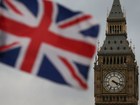Asian markets mostly rose Monday following last week's forecast-busting US jobs report but the dollar struggled against most other currencies, with this week's expected Federal Reserve interest rate hike already accounted for.
Friday's employment report reinforced a long-running belief the world's top economy was on a strong growth track and focus is now on the conclusion of the central bank's policy meeting Wednesday, hoping for clues about the next increase.
 Full Story
Full Story
Banking giant HSBC announced the appointment of a new chairman Monday as part of a management overhaul which will also see it choose a new CEO, after a massive drop in profits in 2016.
 Full Story
Full Story
In his January inauguration speech, U.S. President Donald Trump made a seemingly straightforward pledge: "We will follow two simple rules: buy American and hire American."
 Full Story
Full Story
Australia's prime minister held talks with Elon Musk Sunday after the U.S. innovator offered to solve the energy crisis plaguing a southern region in a hundred days -- or install the technology free.
 Full Story
Full Story
Passengers flying in and out of Berlin airports face delays or cancellations Monday due to a ground crew strike over pay, union officials said.
 Full Story
Full Story
Britain is drawing up contingency plans in case its Brexit negotiations with the EU fail, a minister said Sunday as speculation mounted that the withdrawal process could start this week.
 Full Story
Full Story
Iran received its second new Airbus plane Saturday under an order that Tehran placed last year after a partial lifting of international sanctions.
 Full Story
Full Story
The US economy had another strong month of job creation in February, the Labor Department reported Friday -- a result sure to boost already high expectations that the Fed will raise interest rates next week.
 Full Story
Full Story
Germany's trade surplus ticked upwards in January, official data showed Friday, as attacks from the Trump White House over the nation's export strength intensify.
Europe's largest economy exported 18.5 billion euros ($19.6 billion) more than it imported, according to preliminary data adjusted for seasonal and calendar effects from federal statistics office Destatis.
 Full Story
Full Story
China's central bank governor said Friday the yuan should be "relatively stable" this year after losing seven percent of its value in 2016 amid accusations by US President Donald Trump of currency manipulation.
People's Bank of China Governor Zhou Xiaochuan said the world's number-two economy was expected to stabilise after posting its slowest growth in more than a quarter of a century last year, with benefits for the yuan.
 Full Story
Full Story



